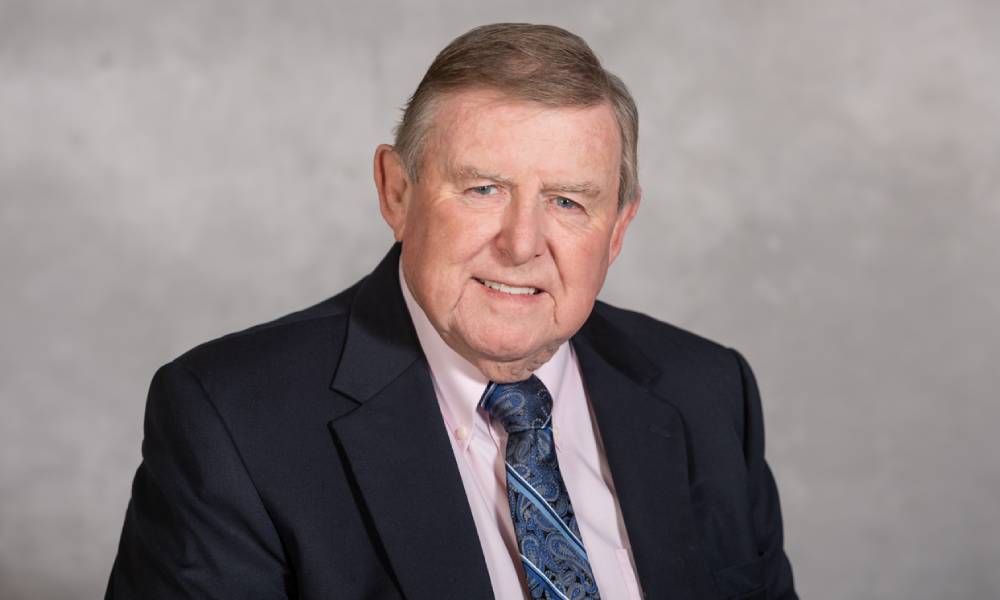Montreal-based veteran advisor did his due diligence and found a company that met all his goals – where he's still consulting

Herb Braley, a Montreal financial advisor for 54 years, started doing his due diligence to find a buyer for Braley Winton Financial Group about six years before he wanted to sell. Investment Planning Counsel (IPC), owned by the Power Group, bought the company, which had been in business since 1998, three years ago and Braley is happy with the results, which met all his objectives and has left him in a consulting role.
“Many, many advisors don’t think they’ll ever die, get sick or get old,” Braley told Wealth Professional. “But every advisor should have a transition plan in place. I would call it a business continuation plan.
“That’s why I think someone who’s just new in the business also needs it because what if he or she dies? If they have a good continuation plan in place to cover death and disability, this can be a valuable asst for them to tell his clients. And as you get older, it’s good to have a succession plan in place.”
Braley shared these steps for other advisors to get the win-win situation that he created for his clients, staff, suppliers, dealers – and himself.
- Determine your objective: The first thing advisors need to do is determine their goals and objectives.
“Make sure you know what you want. What are your objectives?” Braley warned advisors. “Because many brokers say they want to sell, but they don’t really want to sell.”
When Braley decided to make the move, he determined he had four objectives to carry on what he’d built.
“The most important thing to me was that that it had to be a good fit for my clients,” he said. “Will the new company treat your clients the way you want them treated?” He cautioned advisors to think about that as they’re doing their due diligence.
Next, it needed to be good for his employees and staff. He had a large number, so knew he needed to find a bigger business.
“The third thing was that I wanted it to be a good thing for my suppliers and my dealers because we were all partners while I was growing,” said Braley. “And, lastly, would it be good for me?”
- Prepare your book for a good sale: If advisors truly want to sell, then Braley said they should prepare themselves and company for sale.
“What buyers are going to look at is continuing revenue,” he said. “There are a lot of brokers in the past that were selling with a front end commission that nobody does now, or most don’t.”
Braley recommended that brokers with that should “get his book into continuing revenue, in other words, switch everybody to a front end zero that is steady cash because companies buying really look at the revenue system and whether it’s going to continue.”
“I would say concentrate on having good records and a data management system and have your compliance issues right up-to-date,” he said. “Make sure all of your clients have had their KYC done recently. The more in order your book is, the better the buyer likes to take chances if he can go in and look at your clients and then all the information is in a good book. That gives him something to work with.
“Clean up your book to make sure that it’s in order and it’s easy for your buyer or whomever is positioning the business to look at,” he said. “if they’re buying a book for $10 million or whatever, they want to know what return they’re going to get on ther investment.”
Advisors should also ensure they have the staff to continue the business if they leave.
“You’ve got to build that in or look for a company that can do all that for you,” said Braley. “In other words, don’t try to sell to someone who can’t continue to service your clients.”
- Determine whether your buyers can meet your goals: When Braley was exploring his options, he had three corporations considering the acquisition. He knew he needed a large company to meet his four objectives because “my business is worth quite a bit of money”. The company needed to have the human and financial resources required to retain all his employees.
He agreed to IPC because it met all his goals.
“They took over all my employees and nothing changed for my clients.,” he said. “They were already at IPC, so I didn’t have to do a dealer transfer. That could have been done, but the dealer transfer was just an added benefit I didn’t have to do.”
IPC also dealt with all his suppliers, and didn’t put him in the position of having to deal with a certain product – as one of the insurance companies that he was looking at would have required.
He talked to several companies, including Industrial Alliance and Assante, but eventually sold to IPC, whose president was a friend. But, he’s happy with the deal, which used his business succession model to acquire other Canadian companies, while allowing him to retain his products. It retained his staff, with pay as much or more than he paid, plus benefits and pensions, and nothing changed with his suppliers.
“We just kept going exactly as we were,” said Braley, noting that IPC also gained by adopting by owing the clients’ revenue stream.
- Ensure your transition: Braley cultivated a successor to take over his clients, but also agreed to remain as a consultant in the transitioning business for three years. So, he recommended that advisors remain during the transition to have some control over retention.
“I don’t look at the price as the major issue,” he said. “The major issue is how are your clients going to be taken care of? Are you going to be there to help with the transition? And does it meet what you want? I wanted to be there for a year or two and that’s what I’m doing.”
Braley has agreed to stay until December 2022. “But I want to tell you that I’m not gone in ‘22. I’m gone from my former responsibilities, but they’ll probably still keep me as a consultant to try to acquire business for them,” he said, noting he’ll retain contact with clients. “I’d have to be in the ground to quit.”



